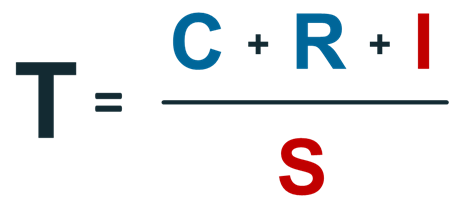Question Obsession: The Silent Sales Killer
Have you counted how many questions you ask in your typical client meeting? Do you find yourself carefully crafting the “perfect” question sequence before every sales call? Are your meeting notes filled with question frameworks rather than real insights?
If so, you may be suffering from Question Obsession—a condition that’s quietly sabotaging your client relationships and sales results.
————————
We all know the sacred rule of consultative selling: “Ask before you tell.” This foundational principle has been drilled into us through countless sales trainings, books, and mentoring sessions. And for good reason—clients don’t want to be lectured or sold to without first being understood.
But somewhere along the way, this valuable principle morphed into an unhealthy fixation. What started as “ask good questions” became “the question is everything.” This is Question Obsession, and it’s time we addressed it.
The Question Addiction Cycle
The addiction starts innocently enough. Early in our careers, we witness the power of a well-placed question. A client lights up, barriers come down, and suddenly we’re having a real conversation instead of delivering a pitch. It feels magical.
So we seek more of that magic. We collect questions like trophies. We categorize them, sequence them, and practice them in the mirror. Sales methodologies feed this addiction with ever more sophisticated question taxonomies:
- Discovery questions vs. qualification questions
- Pain questions vs. implication questions
- Strategic questions vs. tactical questions
Soon, our preparation becomes dominated by question planning. We walk into meetings armed with questions for every conceivable scenario. We become so focused on delivering these questions that we’re barely present for the answers.
Does this sound familiar?
- Have you ever asked a follow-up question without fully processing the answer to your first question?
- Do you feel panic when the client gives an answer for which you don’t have a follow-up question prepared?
- Do you evaluate meeting success by how many of your prepared questions you managed to ask?
It’s easy to believe the hype that, with the right questions, you can unlock any deal.
No, you can’t.
This obsession manifests in what I call “question choreography”—the belief that if we can just sequence our questions perfectly, the client will inevitably arrive at our desired conclusion. It’s mechanical. It’s manipulative. And clients can sense it a mile away.
The Dangers of Question Obsession
Question Obsession creates three significant problems:
- It makes conversations feel like interrogations. When you’re focused on your next question rather than truly listening, the client experiences the interaction as transactional rather than collaborative. They feel processed rather than understood.
- It elevates technique over authentic curiosity. True value comes from genuine interest in the client’s situation—not from methodically working through your question checklist. Question Obsession replaces real curiosity with procedural questioning.
- It creates artificial conversation. Natural human dialogue involves a balanced exchange of questions, observations, ideas, and reactions. Question Obsession produces stilted, one-sided conversations that never develop the rhythm of trusted partnership.
Beyond Question Addiction
To break free from Question Obsession, we must remember that questions are means, not ends. They’re tools for creating three outcomes:
Genuine insight: The best questions aren’t clever traps that lead clients to your predetermined conclusion. They’re invitations to joint discovery. When you ask a question, be genuinely open to having your own understanding expanded. Ask yourself: “Am I asking this to confirm what I already believe, or am I truly curious about the answer?”
Deeper connection: Questions should build bridges, not just extract information. Listen for emotional content in answers, not just facts. A simple “How did that impact you personally?” can transform a clinical discussion into a meaningful exchange. The goal isn’t to collect data points but to understand the human experience behind them.
Client empowerment: Questions should leave clients feeling more capable, not more dependent. Great questions help clients articulate thoughts they couldn’t previously express, see patterns they hadn’t noticed, and imagine possibilities they hadn’t considered. They should walk away feeling smarter, not just more thoroughly analyzed.
Remember, it’s not about asking the perfect question; it’s about creating the right conversation. The quality of your attention matters more than the cleverness of your questions. Presence beats preparation. Genuine curiosity trumps question choreography.
Break free from Question Obsession and discover what lies beyond: the authentic dialogue that builds lasting client relationships and drives meaningful change.
Trust-Based Resources to Maximize Your Team’s Potential:
- Build trust on your terms through our Self-Paced Online Courses.
- Join the crowd and sign up for one of our Public Virtual Workshops.
- Subscribe to our newsletter.
- Follow us on LinkedIn or Instagram.
- Contact us directly to encourage cultural change in your organization through a trust-centric framework that pulls everyone together.
I used AI to support researching and writing this blog series.

 We often think of establishing trust in business relationships in sales-related roles. For instance, if I have a product or service, I will tell you how my industry knowledge and credentials will make it clear I am the person you should buy from. In short, you can trust me. I know everything there is to know about this product or service. Just ask me!
We often think of establishing trust in business relationships in sales-related roles. For instance, if I have a product or service, I will tell you how my industry knowledge and credentials will make it clear I am the person you should buy from. In short, you can trust me. I know everything there is to know about this product or service. Just ask me! Trust is complicated in many aspects of our daily lives; by comparison, trust in business seems relatively straightforward. Or is it?
Trust is complicated in many aspects of our daily lives; by comparison, trust in business seems relatively straightforward. Or is it?

 MISCONCEPTION 3: CLIENTS JUST WANT YOU TO SOLVE THE PROBLEM
MISCONCEPTION 3: CLIENTS JUST WANT YOU TO SOLVE THE PROBLEM There are seemingly endless reasons our clients do not take our advice. Challenges like internal disagreements, budget constraints, and rotating decision-makers can cause countless proposals to be refused or ignored, regardless of how obvious the need may appear.
There are seemingly endless reasons our clients do not take our advice. Challenges like internal disagreements, budget constraints, and rotating decision-makers can cause countless proposals to be refused or ignored, regardless of how obvious the need may appear.
 Let’s talk about focus.
Let’s talk about focus. A question I often ask when running leadership development programs is, “How many of you know people who are ‘gold medal’ listeners?” Usually about one-third of the people in the audience raise their hands.
A question I often ask when running leadership development programs is, “How many of you know people who are ‘gold medal’ listeners?” Usually about one-third of the people in the audience raise their hands. You may have heard the quote, “It takes years to build up trust, and only seconds to destroy it.” That saying, like several other truisms about trust, is far from true.
You may have heard the quote, “It takes years to build up trust, and only seconds to destroy it.” That saying, like several other truisms about trust, is far from true.